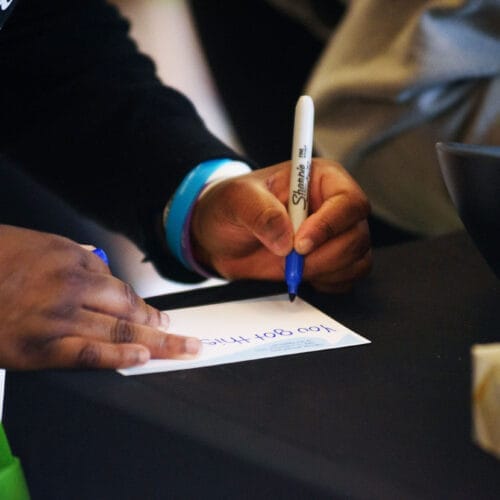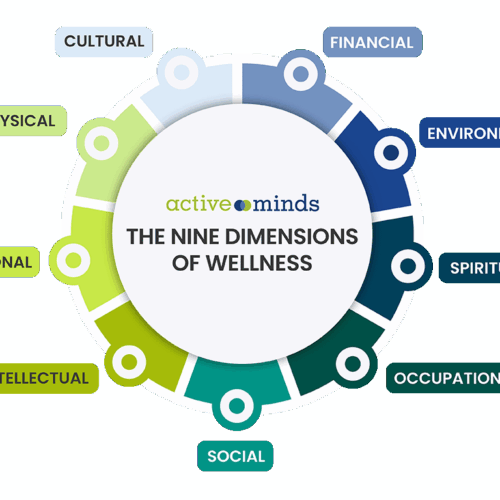Loneliness, Resilience, and Mental Health
Original research from Active Minds and TimelyCare focusing on how college students value and prioritize the mental health of their friends, for others, and themselves.

This report examines:
- College students’ shared concern for mental health at their college and university, their recognition of poor mental health in their community, and their belief that they can work together to improve mental health.
- The relationship between loneliness and mental health concerns.
- The role of family, friends, shared concern about mental health, discrimination, and perception of how their college and university values mental health on loneliness and mental health concerns.
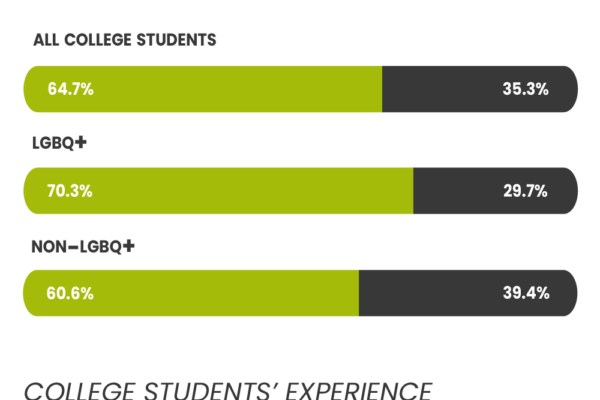
Key Takeaways
Loneliness is associated with higher levels of psychological distress
College students who report feeling lonely are over 4 times more likely to experience severe psychological distress. More LGBQ+ college students report feeling lonely as compared with their non-LGBQ+ peers. Additionally, loneliness is associated with less shared concern about mental health and lower institutional valuation of mental health.
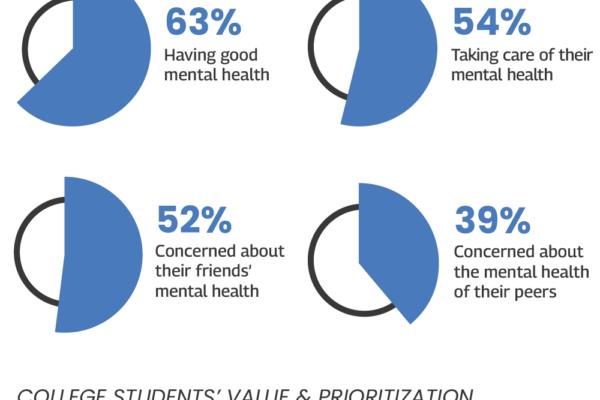
College students value having good mental health
College students value having good mental health for themselves and their friends. Across all racial and ethnic groups, Black and Latino/a/e college students value having good mental health and taking care of their mental health the most. LGBQ+ students were more likely to prioritize their friends’ mental health than non-LGBQ+ students.
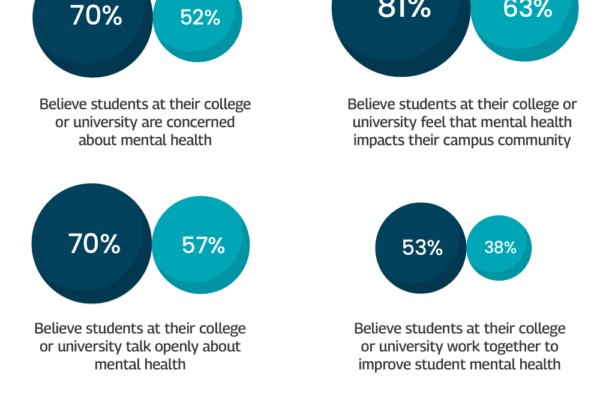
Mental health is an important campus issue
Although two-thirds of college students believe mental health is an important campus issue, only half say students work together to improve mental health in their campus community. Those attending four-year colleges and universities are more concerned about student mental health.
Implications for Practice
Address the Epidemic of Loneliness, Especially for LGBQ+ Students
Loneliness is one of the top predictors of psychological distress and negative mental health outcomes. With many college students continuing to experience loneliness, and its predictive relationship on psychological distress, colleges and universities are uniquely positioned to support and address student mental health needs.
Tailor Mental Health Resources to Students’ Needs and Identities
Since having good mental health is important to college students, there are many opportunities to build, expand and grow campus-wide programs, initiatives, and policies to support student mental health. Currently, many mental health programs are created to address mental health concerns at the individual-level, such as in-person and virtual counseling services, online self-help programs, and campus self-care events, and these initiatives continue to be valuable.
Equip Students with Skills to Support Each Other
College students are interested and willing to support their friends and help them take care of their mental health. Programs aimed at the interpersonal-level, such as formal or informal peer support programs, emotional literacy programs, peer coaching programs, and virtual peer communities, may help students gain the knowledge and skills to adequately support their friends without feeling like they have to be an expert to help.
Encourage Student Voices and Advocacy in Decision-Making
College students understand and experience the unique ways mental health impacts their communities. On college and university campuses, students can be and are fundamental drivers of change.
This report analyzes findings from a sample of nearly 1,100 college and university students collected via an online survey by Active Minds and TimelyCare in February 2024.



